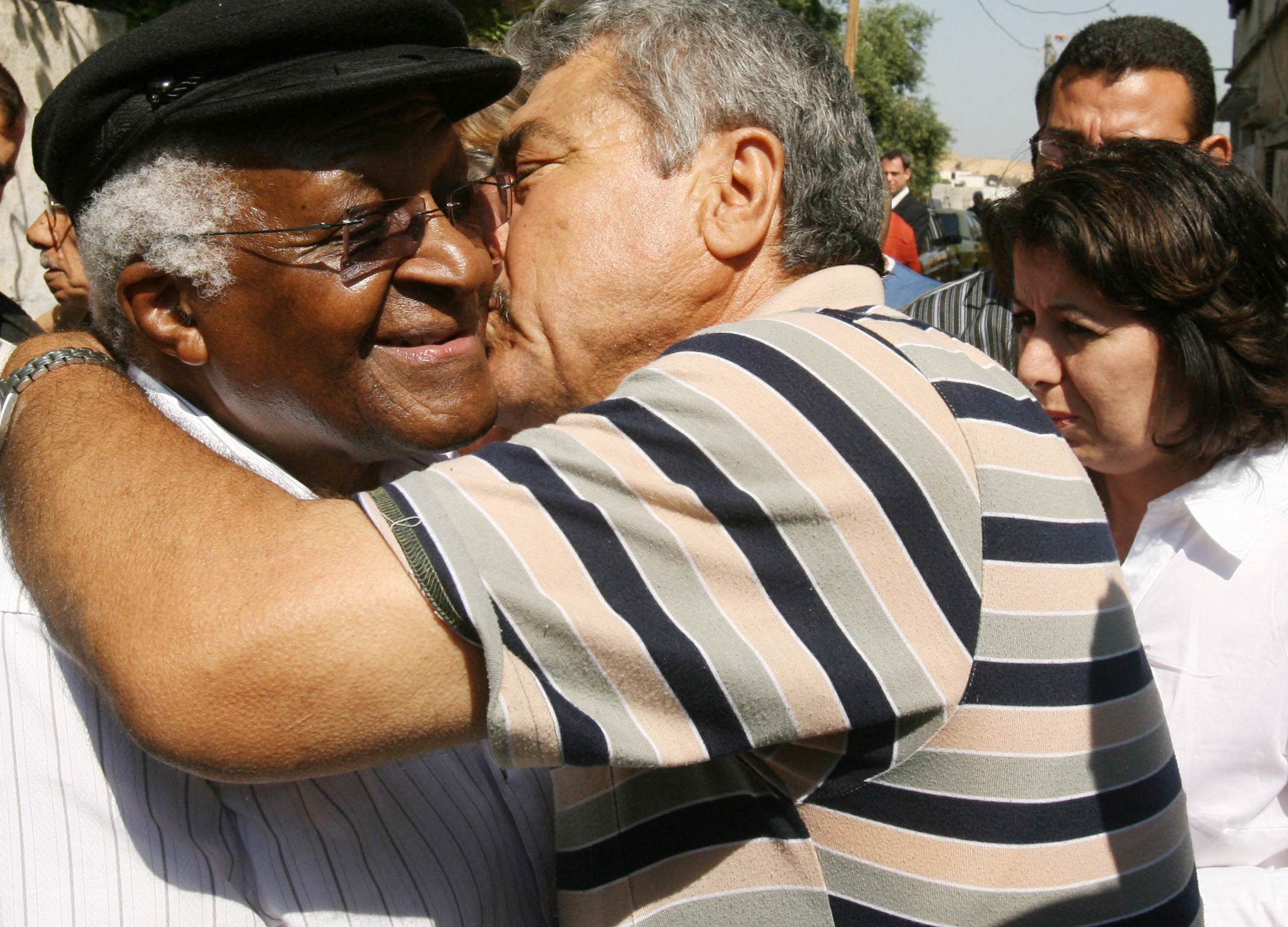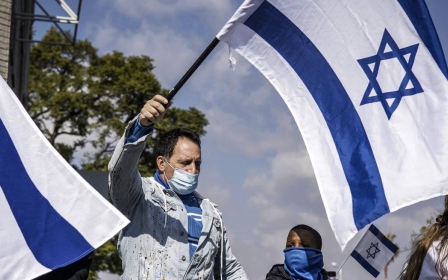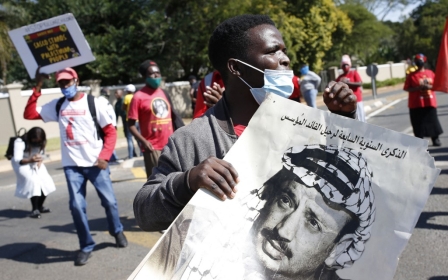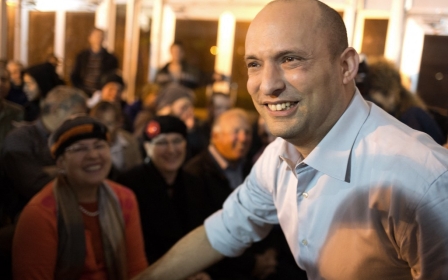Remembering Desmond Tutu in times of uncertainty
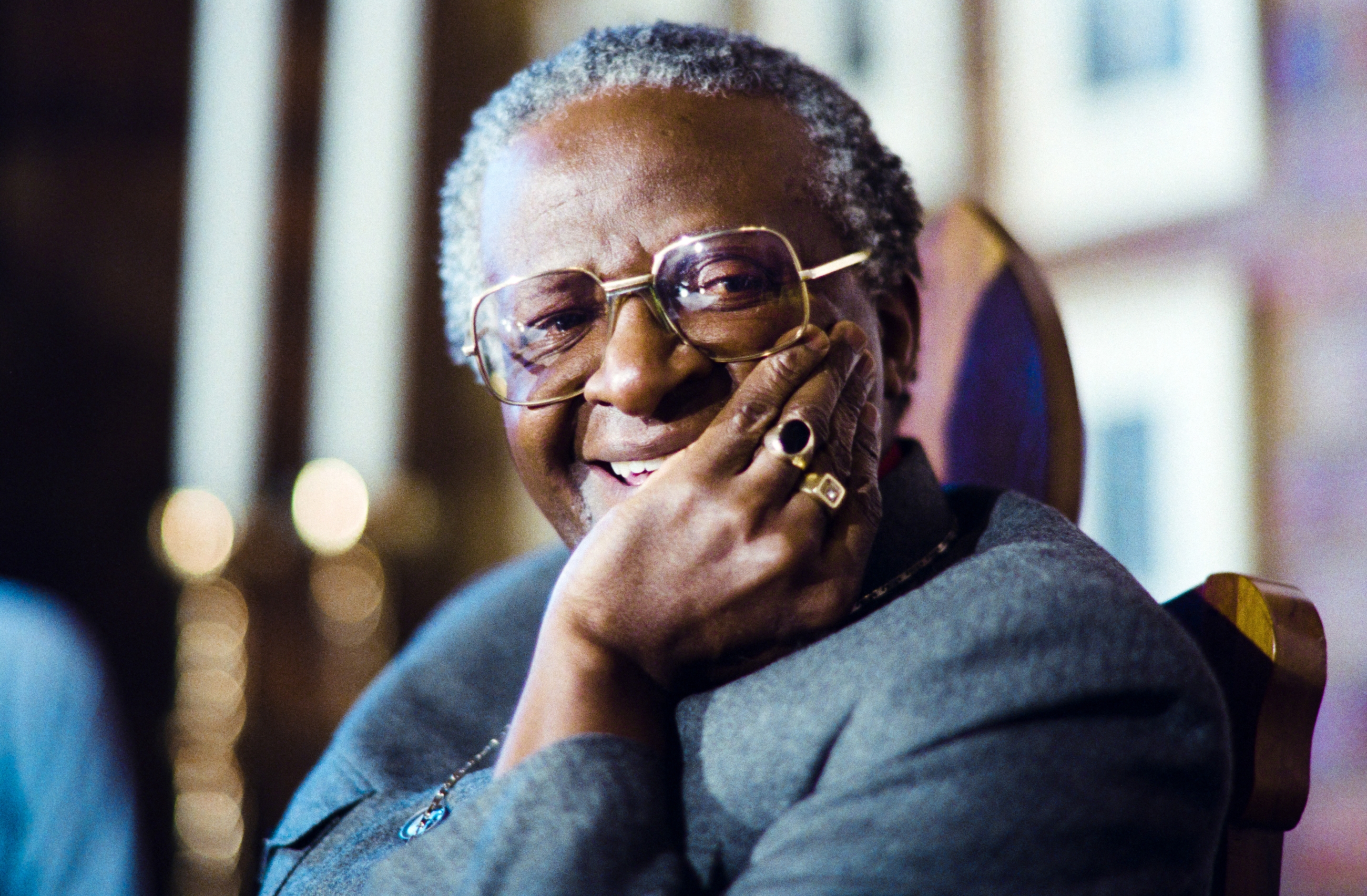
On Saturday, we honour the passing on of a respected spiritual father (Baba), formally known as Archbishop Desmond Tutu and more popularly as “the Arch”.
He was a person honoured by many for being a social conscience and a public moral compass. A compass is normally expected to provide clear and predictable direction. A moral compass is expected to have that same function for humans having to deal with the matters of life.
How on earth can such an enigma be a moral compass?
Tutu's ministry, service, and activism for justice and peace were acts of deep and enigmatic love.
His thoughts, words, actions, and humour could perhaps be summarised as: I love, therefore I resist.
New MEE newsletter: Jerusalem Dispatch
Sign up to get the latest insights and analysis on Israel-Palestine, alongside Turkey Unpacked and other MEE newsletters
And: I resist because I love.
The enigma is namely that love and his enigmatic love are not generally known nor appreciated to be defining the praxis of liberation from injustice.
Enigmatic love
During South African Apartheid, a group of young, white, Calvinist Afrikaner Christians went to meet with Tutu as part of an exposure trip to "the other side" of South Africa.
Tutu apparently asked them to read from the Bible where it is written that all humans are made in the image of God.
Their obvious expectation could have been to experience first-hand the anger, resentment, and hurt from a black South African, a prominent black African liberation theologian and church leader.
Tutu’s message reportedly was: if you can manage to see yourself as created in the image of God, go tell fellow Afrikaners they too are. Once you see that in yourself then you will also see the image of God in black South Africans. If you can’t see that in yourselves and blacks then you will know how evil Apartheid is.
Apartheid damages and deprives you of your sense of your own humanity. How else would such an inhumane system exist?
He escalated this same message to the Holy Land.
“Peace requires the people of Israel and Palestine to recognise the human being in themselves and each other; to understand their interdependence,” he said.
It is with this love that he - as a Christian and clergyman - had been an inspiration to Palestinians across the board - and Palestinian Christians in particular.
At the same time, he had been respected for cautioning Palestinians and those in solidarity with Palestine to ensure that they do not repeat history and - by default - perpetuate injustice.
In 2014 he wrote to Haaretz “violence begets violence and hatred, that only begets more violence and hatred”.
The implication is that, without the logic of this enigmatic love, activists for justice and peace could just as well sustain the problem we seem to “fight” against.
It is with this love that Tutu, Baba Mpilo, could in no uncertain terms admonish the new post-apartheid elite in South Africa, who were, in essence, sustaining and repeating the history of systemic and endemic corruption and injustice.
It is with the logic of this love that he seemed to have attracted anger - and even mistrust - for not fitting into the confines and doctrines of both friends and foes.
A sad reality
With regards to the Holy Land, the scandalous and sad irony and reality are that Tutu’s evidently Christian voice and testimony is not - as of yet - the voice of the Christian community at large and of churches in particular.
Tutu always maintained that the silence, inaction and neutrality in situations of injustice means complicity
In fact, it could be said, yet again, that Christian support for the policies and practices of the Israeli regime, whether in the form of movements like Christian Zionism or other forms of subtle support through silence, inaction, and neutrality, remains a major and even an essential force for sustaining a regime of injustice namely apartheid.
Tutu always maintained that silence, inaction, and neutrality in situations of injustice means complicity
In my opinion, the greatest scandal of all is that this faith community holds up the claim of being messengers of this enigmatic love as preached and lived by the historic-Palestinian-Jew, Jesus.
In their 2009 Kairos document, Palestinian Christians stated as both Palestinians and Christians: "the ‘good news’ in the Gospel itself has become ‘a harbinger of death’ for us".
Tutu's enigmatic love is not an exclusive domain to the Christian community. It might perhaps be time for "others" to remind the Christian community of this love.
Tutu’s campaigns were broad and deep during this time of uncertainty - and may have been the only thing we could be certain of.
Baba, with your wisdom and humour you will understand why some of us are seriously praying for Heaven in having to receive you. Heaven may forever not be the same again. For you, you will be in Heaven as you had been on earth.
We salute you, our brave and enigmatic ancestor. Shukran habibi (Thank you, beloved one) Hamba kahle, Baba Mpilo. (Go well, respected father Mpilo).
The views expressed in this article belong to the author and do not necessarily reflect the editorial policy of Middle East Eye.
Middle East Eye delivers independent and unrivalled coverage and analysis of the Middle East, North Africa and beyond. To learn more about republishing this content and the associated fees, please fill out this form. More about MEE can be found here.



